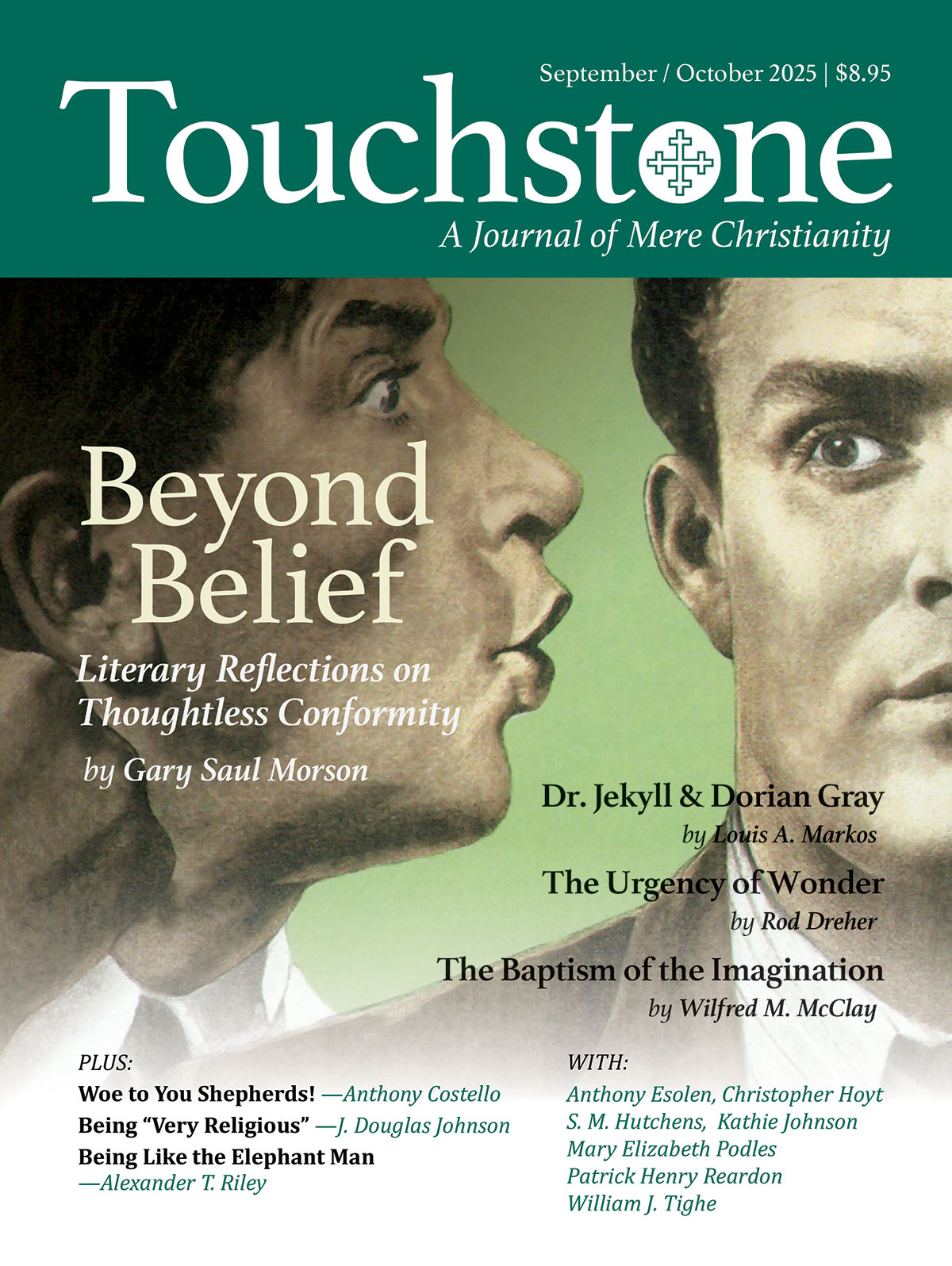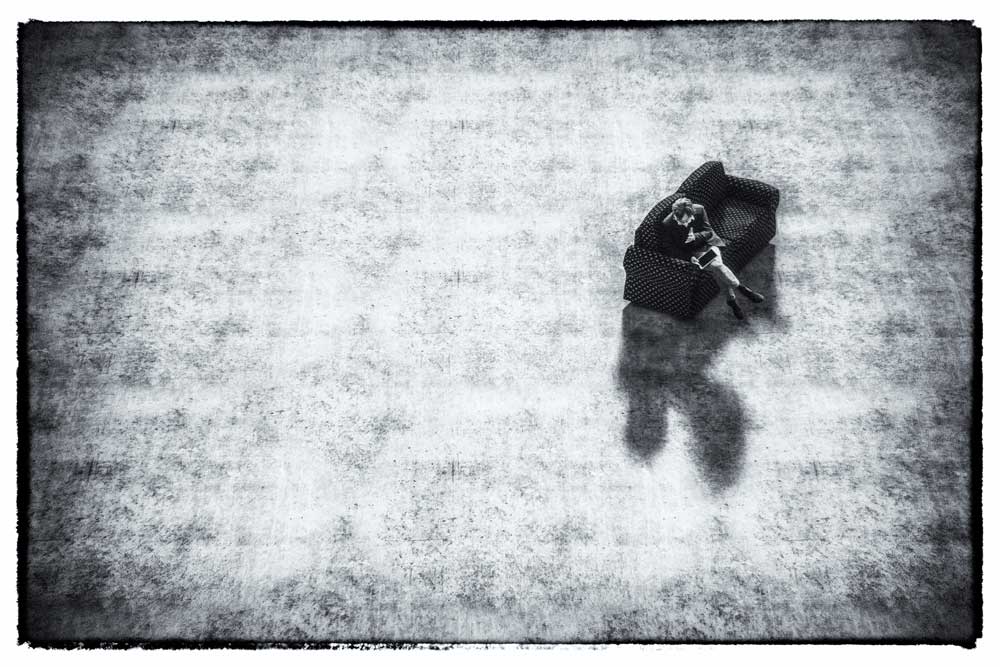The Urgency of Wonder
Re-enchanted Christianity as a Negative World Survival Skill
by Rod Dreher
The word “enchantment” is annoying and twee. It brings to mind a vision of Disney magic, of sparkles, glitter, sugarplum fairies, and the aroma of chocolate chip cookies baking in grandmother’s oven. Unfortunately, it is the word sociologist Max Weber used to identify the “disenchanted” way we all live in the post-Enlightenment world.
So when I argue that re-enchantment is a necessary survival skill for Christians in the “negative world,” as Aaron Renn calls contemporary culture, with its anti-Christian fundamentalism, it’s important to clarify that I’m not urging readers to bring smells, bells, and a faith-friendly version of New Age woo into their religious lives. No, what I mean by enchantment is something far more substantial. In fact, because it has to do with the metaphysical reality of how we live, and move, and have our being, it’s the most real thing there is.
What is Christian enchantment? In the disenchanted world, there is no transcendental or spiritual dimension to existence. Matter is dead. Science and other forms of empiricism are the only reliable ways to know truth. There is no fundamental and objective significance, no logos, embedded in anything. Meaning is what we impose on a meaningless world. Miracles don’t happen. Religion is at worst a harmful delusion, and at best a socially beneficial mythology, but it certainly has nothing to do with truth.
Most people don’t live that way, of course, but this is the framework we are given for understanding life in the modern West. A surprising number of Christians in the West have unthinkingly accepted many of its premises. How many Christians have come to believe that matter doesn’t really matter, that faith is about studying Scripture, affirming certain propositional truths, going to church on Sunday, and being a good neighbor? Yes, the Christian life does entail those things, but that’s not the whole of it.
An American exchange student approached me in Hungary last year and, referring to his Evangelical faith, said, “I believe it all, but I’m dying to experience transcendence. What should I do?”
He is a believer, so not entirely disenchanted. But he sensed that he was missing some fundamental dimension of the Christian experience. As he struggled to explain himself, I heard in his words a sense of longing and disappointment that he might have put in the form of a question: Is this all there is?
No, I told him; this is not all there is. In subsequent conversations (for we have become good friends), I told him about the Anglican theologian Hans Boersma’s concept of “sacramental ontology”—that is, the idea that the things we experience with our senses are connected in a mysterious but real sense to God. We live not in a meaningless universe, but in an ordered cosmos.
All of material creation is shot through with logos, or rational purpose. If we see the world as it truly is, we will understand it as a mystery through which God discloses himself—in other words, as a sacrament. This is not just a pleasant concept; it describes an actual, existing reality. To be fully human, as God has created us to be, is to participate in that reality, and to be changed by it, to become more holy and conformed to Christ. Our role is a priestly one: to be instruments of the Holy Spirit for the transformation and sanctification of the world.
All things, therefore, are sacred, and must be treated as such. Nothing is meaningless. Truth is objective, but the truth of the things that really matter can only be known subjectively—that is, through the individual person grasping it with passionate inwardness, and allowing it to make of him a new creature in Christ.
This, I explained, is what it means to be re-enchanted as a Christian. I told him about Hans Boersma’s concept of the Great Tradition—the Christianity of the first millennium, when all believers shared a sacramental ontology. The good news is that we Christians all shared that in the past and might recover it today. The even better news is that disenchantment is primarily a phenomenon of the contemporary West. This means that our disenchanted, or semi-disenchanted, worldview is only that: a temporally and culturally determined worldview, a take.
Rod Dreher is a contributing editor to Touchstone. He is a writer and blogger and the author of several books, including The Benedict Option (2017) and Live Not by Lies: A Manual for Christian Dissidents (2020).
subscription options
Order
Print/Online Subscription

Get six issues (one year) of Touchstone PLUS full online access including pdf downloads for only $39.95. That's only $3.34 per month!
Order
Online Only
Subscription

Get a one-year full-access subscription to the Touchstone online archives for only $19.95. That's only $1.66 per month!
bulk subscriptions
Order Touchstone subscriptions in bulk and save $10 per sub! Each subscription includes 6 issues of Touchstone plus full online access to touchstonemag.com—including archives, videos, and pdf downloads of recent issues for only $29.95 each! Great for churches or study groups.
Transactions will be processed on a secure server.
more on conference talk from the online archives
more from the online archives
calling all readers
Please Donate
"There are magazines worth reading but few worth saving . . . Touchstone is just such a magazine."
—Alice von Hildebrand
"Here we do not concede one square millimeter of territory to falsehood, folly, contemporary sentimentality, or fashion. We speak the truth, and let God be our judge. . . . Touchstone is the one committedly Christian conservative journal."
—Anthony Esolen, Touchstone senior editor












